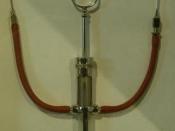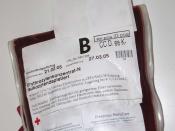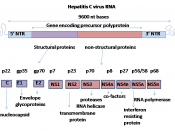Liver Disease
I chose liver disease as my subject, specifically Hepatitis C ("HCV"), because my father was diagnosed with HCV in 1999. He went on Interferon every other day for six months in 2000 and it didn't work. He went on it again every day for 18 months starting in 2001 and it still did not work. He had carried this disease for 30+ years without knowing he had it. He found out by going to a Podiatrist for a heal spur. The Doctor wanted to put him on a medication that is hard on the liver and as a precaution took some tests to see how his liver was functioning. Now he is on the national liver transplant list and has been for over 3 years. He has never received a blood transfusion and has never taken intravenous drugs. We think that he may have gotten the disease from a tattoo when he was sixteen.
The liver is the largest organ in the body and is essential in keeping the body functioning properly. It removes or neutralizes poisons from the blood, produces immune agents to control infection, and removes germs and bacteria from the blood. The liver also makes proteins that regulate blood clotting and produces bile to help absorb fats and fat-soluble vitamins. You cannot live without a functioning liver.
In cirrhosis of the liver, scar tissue replaces normal, healthy tissue, blocking the flow of blood through the organ and preventing it from working as it should. Liver damage from cirrhosis cannot be reversed, but treatment can stop or delay further progression and reduce complications. Cirrhosis is the twelfth leading cause of death by disease, killing about 26,000 people each year.
HCV is a leading indication for liver transplants. HCV is a blood disease that resides in the...


